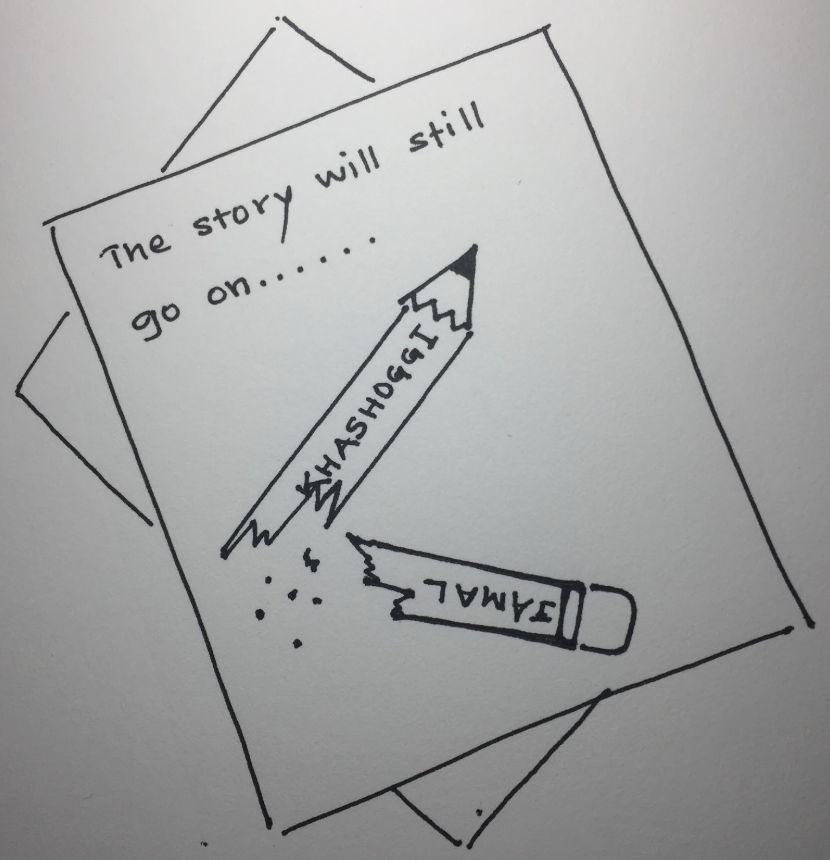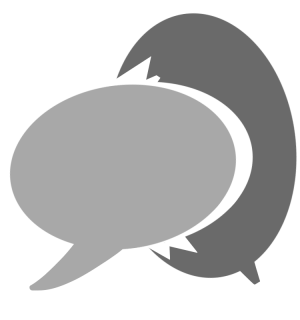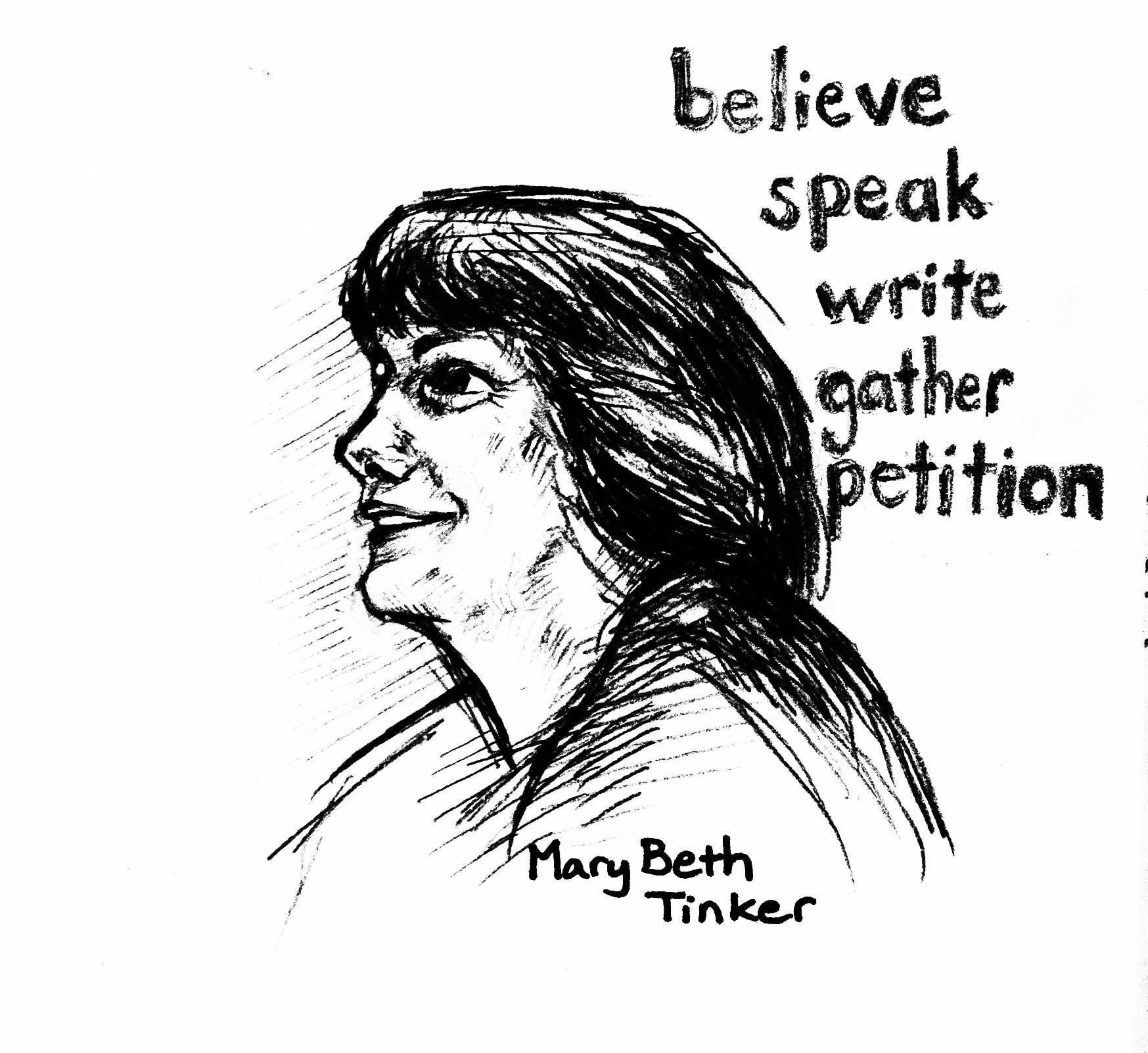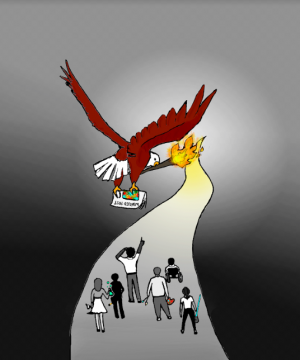Crossing a line
November 12, 2018
free press: (n.) A press having the freedom to operate without interference or censorship.
On Dec. 15, 1791, Congress ratified the first amendment, guaranteeing the freedom of expression and the right of the press to speak freely.
For over 200 years, American journalists and citizens have been protected under this amendment. As a columnist at the American publication, The Washington Post, Jamal Khashoggi’s critiques of Saudi Arabian leadership were encouraged.
As a prominent Saudi journalist, they were not.
Khashoggi fled his homeland for the United States in a self-imposed exile following fear of arrest by Crown Prince Mohammed bin Salman in 2016. After feeling the effects of an increasingly repressive regime which was dampening the voices of those who spoke out against it, Khashoggi decided to leave, before he too, was incarcerated for his criticism.
Two years later, on Oct. 2, he returned to the Saudi consulate in Istanbul, where he was then killed in an alleged physical altercation. Prior to his death, he told Sky News of his fears about Saudi Arabia’s new regime.
“The crown price wants to be the leader of the reform, and he wants to control the narrative,” Khashoggi said. “It is very worrying. We are going into an era of one-man rule, of authoritarianism; some kind of chauvinist narrative that accuses independent Saudis of being traitors. And this is scary. This is not the Saudi Arabia we want.”
As a journalist residing and working for an American publication, Khashoggi’s writing was protected under constitutional rights.
However, earlier this year, Trump took to Twitter to inform Americans that “[the press] was the enemy of people.” This came following the excessive usage by the President of “fake news,” defined by Dictionary.com to be “false news stories, often of a sensational nature, created to be widely shared online for the purpose of generating ad revenue via web traffic or discrediting a public figure, political movement, company, etc.” Trump has used this phrase to attack several publications which have defamed his administration.
The press is meant to inform people. For centuries, journalists have fearlessly ventured into the front lines and crawled behind the scenes to cover jarring stories, granted protection under the First Amendment.
As a country, we need to take a minute to introspect. This country was founded on the basis of freedom for all, regardless of political or religious belief. When we see injustice, we need to take steps to correct it. We are meant to embrace our bipartisanship, engage with others who may have varying viewpoints and coexist peacefully.
As a journalist, Khashoggi’s death was deeply troubling. Apart from the unjustified consequences he faced for his views, the issue of free press looms over the American people under this administration. In his final column for the Washington Post, Jamal Khashoggi emphasized the need for a free Arabian press.
Through the creation of an independent international forum, isolated from the influence of nationalist governments spreading hate through propaganda, ordinary people in the Arab world would be able to address the structural problems their societies face,” Khashoggi said.
What happened to Khashoggi crossed several lines. 45 journalists have been murdered this year, according to the Committee to Protect Journalists. 4, Gerald Fischman, John McNamara, Rob Hiaasen, and Wendi Winters, all from the Capital Gazette, were murdered in the United States.
As a people, we need to stand up for our rights. Our voices cannot be subdued by fear of punishment. We are protected by the Constitution, and to preserve our democracy, freedom of expression must be embraced.
Regarding Khashoggi’s case, the ball is now in the President’s court. But we can not wait for Trump’s response. As precedents show, he may just turn around and score for the other team.


















![“[Building nerf blasters] became this outlet of creativity for me that hasn't been matched by anything else. The process [of] making a build complete to your desire is such a painstakingly difficult process, but I've had to learn from [the skills needed from] soldering to proper painting. There's so many different options for everything, if you think about it, it exists. The best part is [that] if it doesn't exist, you can build it yourself," Ishaan Parate said.](https://harkeraquila.com/wp-content/uploads/2022/08/DSC_8149-900x604.jpg)




![“When I came into high school, I was ready to be a follower. But DECA was a game changer for me. It helped me overcome my fear of public speaking, and it's played such a major role in who I've become today. To be able to successfully lead a chapter of 150 students, an officer team and be one of the upperclassmen I once really admired is something I'm [really] proud of,” Anvitha Tummala ('21) said.](https://harkeraquila.com/wp-content/uploads/2021/07/Screen-Shot-2021-07-25-at-9.50.05-AM-900x594.png)







![“I think getting up in the morning and having a sense of purpose [is exciting]. I think without a certain amount of drive, life is kind of obsolete and mundane, and I think having that every single day is what makes each day unique and kind of makes life exciting,” Neymika Jain (12) said.](https://harkeraquila.com/wp-content/uploads/2017/06/Screen-Shot-2017-06-03-at-4.54.16-PM.png)








![“My slogan is ‘slow feet, don’t eat, and I’m hungry.’ You need to run fast to get where you are–you aren't going to get those championships if you aren't fast,” Angel Cervantes (12) said. “I want to do well in school on my tests and in track and win championships for my team. I live by that, [and] I can do that anywhere: in the classroom or on the field.”](https://harkeraquila.com/wp-content/uploads/2018/06/DSC5146-900x601.jpg)
![“[Volleyball has] taught me how to fall correctly, and another thing it taught is that you don’t have to be the best at something to be good at it. If you just hit the ball in a smart way, then it still scores points and you’re good at it. You could be a background player and still make a much bigger impact on the team than you would think,” Anya Gert (’20) said.](https://harkeraquila.com/wp-content/uploads/2020/06/AnnaGert_JinTuan_HoHPhotoEdited-600x900.jpeg)

![“I'm not nearly there yet, but [my confidence has] definitely been getting better since I was pretty shy and timid coming into Harker my freshman year. I know that there's a lot of people that are really confident in what they do, and I really admire them. Everyone's so driven and that has really pushed me to kind of try to find my own place in high school and be more confident,” Alyssa Huang (’20) said.](https://harkeraquila.com/wp-content/uploads/2020/06/AlyssaHuang_EmilyChen_HoHPhoto-900x749.jpeg)









